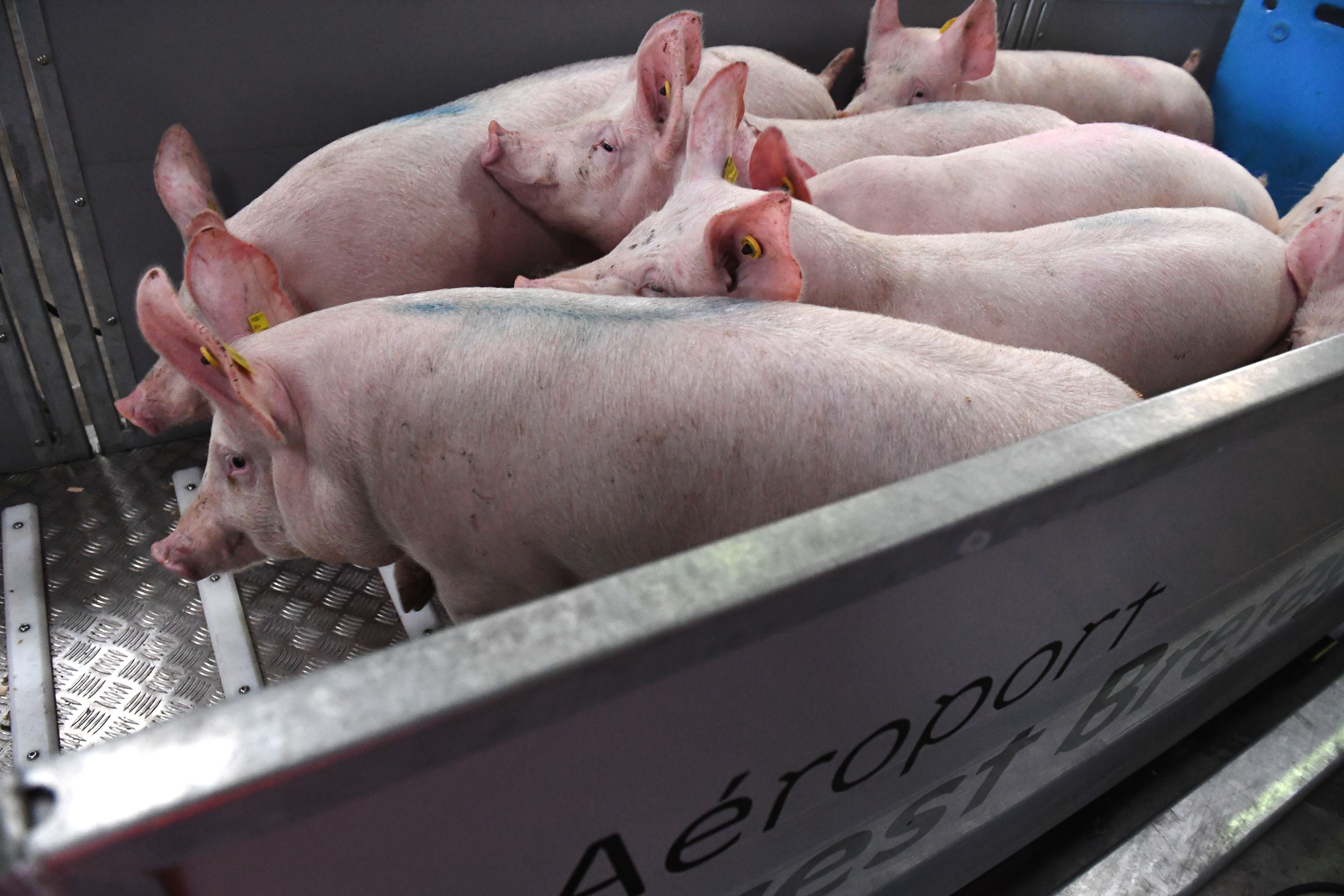The gene-edited kidney of a pig has been transplanted into a human successfully for the first time, with the animal being genetically modified to make the organ compatible.
The 4-hour surgery was conducted at the Massachusetts General Hospital (MGH) on March 16, according to an MGH press release on Thursday. The kidney came from a pig that underwent 69 genomic edits to remove “harmful pig genes” and add “certain human genes to improve its compatibility with humans.” The edits, made using CRISPR-Cas9 technology, were done to ensure that the human body would not reject the foreign kidneys.
In addition, “scientists inactivated porcine endogenous retroviruses in the pig donor to eliminate any risk of infection in humans.” The kidney recipient, Mr. Richard Slayman of Weymouth, Massachusetts, is “recovering well” at the hospital and is expected to be discharged soon.
“Our hope is that this transplant approach will offer a lifeline to millions of patients worldwide who are suffering from kidney failure,” said Tatsuo Kawai, director of the Legorreta Center for Clinical Transplant Tolerance at MGH.
The transplant procedure was performed under the U.S. Food and Drug Administration’s Expanded Access Protocol (EAP). The EAP, also known as compassionate use, grants patients with serious and life-threatening conditions access to experimental treatments. In addition to the kidney transplant, Mr. Slayman was infused with novel immunosuppressant drugs.
Mr. Slayman, who has suffered from hypertension and type 2 diabetes for several years, initially received a human kidney transplant in 2018 after being on dialysis for seven years. However, five years later, the kidneys showed signs of failure and his dialysis was restarted in May 2023.
“My nephrologist, Dr. Winfred Williams, MD, and the Transplant Center team suggested a pig kidney transplant, carefully explaining the pros and cons of this procedure. I saw it not only as a way to help me, but a way to provide hope for the thousands of people who need a transplant to survive,” Mr. Slayman said in a statement.
Joren Madsen, director of the Mass General Transplant Center, said that normally the human immune system “reacts incredibly violently” to a pig organ.
A person receiving human organ transplants is given medications to prevent rejection. If such medications were given to someone receiving pig kidneys, “that transplant would reject and turn black in minutes. Minutes,” he said.
The 69 gene edits made to the donor pig’s DNA and the special monoclonal antibodies were developed to prevent rejection of the kidney contributed to making the transplantation a success, Mr. Madsen stated.
Animal-Human Transplantation
While Mr. Slayman’s case is the first incident of a gene-modified pig kidney transplant, it is not the first time that a pig organ was transplanted into a human. Previously, genetically altered pig hearts were transplanted into two separate individuals, both of whom later died following the process.
For the transplant, the pig’s genetics were altered to make pig embryos. These embryos then grow into pigs in a bio-sealed, controlled environment.
When a person needs a transplant, the organ is extracted from the animal and transplanted into the individual, who must then take immunosuppressant drugs to prevent organ rejection.
The process of transplanting animal organs to human beings, called xenotransplantation, has come under heavy criticism due to ethical concerns.
A 2018 paper published at the National Library of Medicine points out that “gene editing and stem cell biotechnologies are being applied to create chimeric animals with human organs.”
It raised concerns that human cells transplanted into genetically altered pig embryos will “migrate to the animal’s brain and alter its behavior or cognitive state.”
“There is no consensus on accurately assessing what it means to possess a human‐like cognitive state. There are many attributes to personhood including intelligence, capacity to be autonomous, capacity to communicate, and self‐awareness,” the paper said.
“Should personhood be defined as the percent of human brain cells expressed in a human‐animal chimera or should it be assessed using psychological or cognitive learning evaluations?”
The demand for pig organs comes amid a massive shortage of supply of human organs.
According to data from the Health Resources & Services Administration, over 103,000 people in the United States are on the national transplant waiting list. Every eight minutes, an extra person is added to this list. Every day, 17 people die while awaiting their transplants.
In a 2022 interview with BBC, a spokesperson for the UK-based animal rights group Animal Aid said it was opposed to altering animal genetics for xenotransplantation under “any circumstances.”
“Animals have a right to live their lives, without being genetically manipulated with all the pain and trauma this entails, only to be killed and their organs harvested,” the organization said.














